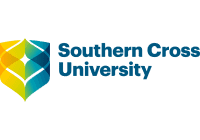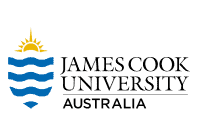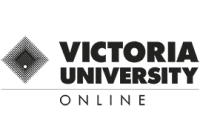Does work experience matter that much for an MBA? You might have been pondering this question if you plan to pursue an MBA in Australia. The debate on whether work experience is necessary for an MBA degree has been ongoing for a while now. Some experts believe that work experience can make or break one's chances of getting admitted to a prestigious business school, while others think otherwise. So, what's the truth?
To answer this question, work experience is crucial for an MBA in Australia. Most of the top-ranked business schools in the country consider work experience as one of the essential criteria for admission. Work experience showcases leadership, management, and problem-solving skills, which are crucial for the MBA program. Without prior work experience, one may find it challenging to keep up with the course's rigour and expectations.
But these are not the only factors that matter. In this article, we'll dive deeper into the significance of work experience for an MBA in Australia, the ideal work experience, and other crucial factors that business schools consider while admitting students. We'll also hear from industry experts and understand their perspectives on the topic.
So, let's explore the world of MBA and work experience in Australia and uncover the truth behind this long-debated topic.
Quick Links To Online MBA Degree Programs
Southern Cross University
Master of Business Administration (MBA) Online
- 2 years, Part-time
- 8-16 units
- $2,990 per unit, FEE-HELP available
James Cook University
Master of Business Administration Global (MBA Online)
- 24 months, Part-time
- 12 subjects (One subject per each 7-week study period)
- $3,700 per subject, FEE-HELP is available
Victoria University
Master of Business Administration (Online)
- 2 years Part-time (minimum)
- 12 units (7 weeks)
- $3,650 per unit, FEE-HELP available
University Of New South Wales
MBAX (Finance)
- 2-6 years part-time
- Fee: AUD$5,190
- Commencing Terms
Term 1 – February
Term 2 – June
Term 3 – September
Why is Work Experience Important for an MBA?
For many reasons, having prior work experience is an absolutely necessary requirement for MBA programmes and succeeding in a profession after receiving an MBA. To begin, it equips students with the hands-on experience and abilities vital to their success in the commercial world.
MBA students who gain work experience can improve their critical thinking and problem-solving skills and their understanding of how to apply theoretical knowledge to real-world scenarios. This is all made possible by gaining a more in-depth understanding of the industry they are studying.
Second, getting real-world experience helps MBA candidates build valuable "soft skills", including communication, collaboration, and leadership. These are the kinds of skills that are highly valued by potential employers and are very necessary for achieving success in the business world. MBA schools in Australia frequently give students who have demonstrated good soft skills in the workplace priority status in the application process.
Thirdly, having previous work experience gives you an opportunity to network, which may be quite helpful for the advancement of your career. MBA students who gain job experience can develop professional ties with their colleagues, clients, and other professionals in the industry. These connections may result in future employment possibilities, business partnerships, and mentoring opportunities.
In addition to these advantages, previous professional experience is also an essential component of post-MBA professional success. Candidates that possess theoretical knowledge and practical experience are often what employers seek to fill open positions. MBA graduates with previous work experience are in a better position to handle obstacles in the workplace and tend to be more attractive to potential employers than MBA graduates who do not have prior work experience.
The applicant's previous professional experience is a crucial factor in determining whether or not they will be accepted into an MBA programme. MBA schools in Australia strive to cultivate well-rounded students by providing a curriculum that strikes a healthy balance between academic prowess and professional experience.
MBA programmes can ensure that their graduates are equipped with the knowledge, skills, and experience necessary to succeed in the business world by prioritising applicants with relevant work experience.
Admission Criteria for Top MBA Programs in Australia
There is some variation in the admission requirements for top MBA programmes in Australia from one university to the next; nevertheless, a few qualities are standard for most programmes and are looked for in applications.
1. Work Experience
As was said before, one of the most important requirements for getting into an MBA programme is prior work experience. In Australia, most of the best Master of Business Administration (MBA) programmes require applicants to have a minimum of two to three years of full-time work experience. This previous job experience ought to be pertinent to the subject of business and management, and it ought to exhibit potential for leadership, skills in teamwork, and a strong work ethic.
2. Academic Performance
The applicant's previous academic record is also considered when determining MBA programme admission. The majority of master's in business administration (MBA) programmes in Australia require applicants to have a bachelor's degree from a university that has been granted accreditation and a grade point average (GPA) of at least 3.0. Applicants to particular programmes could also be required to demonstrate that they have successfully completed prerequisite classes in economics, statistics, or accounting.
3. Standardised Test Scores
The Graduate Management Admission Test (GMAT) and the Graduate Record Examination are two examples of standardised examinations that candidates for MBA schools in Australia are required to take and submit their scores from (GRE). These examinations are utilised to determine a candidate's level of preparedness for advanced academic work, and their results are taken into consideration as a significant component of the admissions decision.
4. Letters of Recommendation
In Australia, the majority of Master of Business Administration (MBA) programmes require applicants to submit anywhere from two to three letters of recommendation written by professionals or academic references. These letters ought to provide insight into the applicant's work ethic, potential for leadership, teamwork skills, and any other attributes.
5. Essays and Personal Statements
Applicants to MBA programmes in Australia are generally required to submit essays or personal statements that provide insight into their career ambitions, motives for seeking an MBA, and personal experiences that have affected their aspirations. These statements can be in the form of essays or narratives. The essays that applicants are required to write are a significant opportunity for them to demonstrate their ability to think critically, their love for business, and their writing skills.
6. Interviews
In conclusion, as a component of the admissions procedure for several of Australia's most prestigious MBA programmes, candidates are required to take part in an interview. These interviews evaluate the candidate's communication abilities, their reason for getting an MBA, and their compatibility with the program's culture and principles. These interviews are often performed by admissions personnel or alumni.
There is a lot of competition to get into the top MBA programmes in Australia. Applicants are expected to have good job experience, academic performance, scores on standardised tests, letters of recommendation, essays, and interviews.
Before applying for a programme, applicants should ensure they fulfil or surpass the minimal prerequisites by thoroughly studying the admission standards for each programme they are considering enrolling in.
Benefits of Work Experience for MBA Students
Students can gain a variety of advantages by gaining professional experience prior to enrolling in an MBA programme. The following are some of the benefits that stand out as particularly important:
1. Building Professional Networks
MBA students frequently create strong professional networks through their job experience, which can be of great benefit to them throughout their careers. These networks may consist of former coworkers, customers, and industry contacts who are able to provide job prospects, mentoring, and assistance at various stages of the individual's professional growth.
2. Applying Concepts to Real-World Scenarios
Students pursuing an MBA benefit from practical knowledge gained through work experience by applying business concepts to real-world circumstances. Students benefit from this experience by gaining a deeper understanding of the relevance and applicability of the ideas they are taught in the classroom and the ability to use these theories effectively in their future employment.
3. Developing Soft Skills
Students pursuing a Master of Business Administration might benefit from gaining valuable "soft skills" through work experience. These abilities include leadership, communication, teamwork, and time management. Employers place a high premium on students possessing these abilities, and having them can give them an edge in the increasingly competitive job market.
4. Gaining Industry-Specific Knowledge
Students obtaining an MBA might benefit from gaining significant industry-specific expertise through work experience. This knowledge can be quite useful when pursuing a career in a certain field. This knowledge can include a comprehension of the industry's trends, difficulties, and opportunities and an awareness of the industry's important players and competitors.
5. Increasing Job Opportunities and Earning Potential
It is possible for MBA students to greatly boost their job possibilities and earning potential by gaining work experience. Many companies would rather hire applicants who already have relevant job experience, and having a solid track record of success in past roles can lead to a greater starting salary and faster career growth.
Having work experience before pursuing an MBA can provide students with many benefits, including building professional networks, applying concepts to real-world scenarios, developing soft skills, gaining industry-specific knowledge, increasing job opportunities, and potentially earning more money.
MBA Without Work Experience in Australia
In spite of the fact that MBA programmes frequently give work experience a high priority, there are a few paths open to people who have never had a job before but are interested in earning a master's degree in business administration in Australia. Consider the following range of possibilities:
1. Entry-Level MBA Programs
There are MBA programmes available in Australia that are geared primarily towards people who do not have considerable prior work experience.
Often, these programmes focus on delivering fundamental business information and assisting students in developing critical abilities that employers highly seek. Some examples of such skills include leadership, communication, and problem-solving. It's possible that recent college grads or people wishing to switch careers would benefit from enrolling in an MBA programme that starts at the entry-level.
2. Executive MBA Programs
Those with extensive professional experience, often between 5 and 10 years, are the target students for MBA programmes geared towards executives. However, certain Executive MBA programmes only need applicants to have previous work experience if they can demonstrate extraordinary academic credentials.
These credentials could include high GPAs or excellent scores on standardised tests such as the GMAT or GRE. Executive MBA programmes, which often provide a more advanced curriculum than entry-level MBA programmes, may be an excellent choice for individuals seeking to expedite their career growth. Businesses typically offer executive MBA programmes.
3. Part-Time or Online MBA Programs
For people who want to continue working while earning their MBA, enrolling in a programme offered online or part-time may be the best option. These programmes often offer greater flexibility than conventional full-time MBA programmes and may be accessible to students who do not have a substantial amount of previous work experience.
MBA programmes completed on a part-time or online basis may take longer to complete than those completed on a full-time basis. Still, they may deliver more useful business knowledge and skills that are applicable to a wider variety of careers.
4. Specialised Master's Programs
Those without previous professional experience may be eligible to enrol in certain specialised master's degree programmes in Australia, which are offered in addition to MBA and other master's degree programmes. These programmes may concentrate on certain areas of business, such as marketing, finance, or supply chain management. They can provide extremely valuable skills and information that can be applied to a particular line of work in the business world.
Those who want to pursue a Master of Business Administration degree in Australia but do not have prior work experience have several choices. MBA schools in this country frequently give work experience a high priority. MBA programmes that are entry-level, Executive MBA programmes, part-time or online MBA programmes, and specialised master's degree programmes can all equip students with important business information and abilities that can be used in a wide variety of careers.
Does Work Experience Matter in Post-MBA Career Prospects?
Experience gained on the job can be an important factor in determining post-MBA employment opportunities. Companies typically place a premium on applicants with a combination of business education and experience in the real world since this can demonstrate that the candidate possesses practical skills and knowledge that can be applied to various business settings.
When it comes to finding employment after completing an MBA programme, individuals who have previous work experience may have an advantage over their peers who do not have this background. This is due to the fact that they can gain valuable skills and information while working in a certain industry or function, which they can then apply to a new position. In addition to this, they might already have developed professional networks and ties, which can be utilised to one's advantage during job hunting.
On the other hand, it is essential to remember that companies do not base their decision to hire an MBA candidate solely on their previous professional experience. Additional aspects, such as academic qualifications, aptitude for leadership, and interpersonal skills, are also given a great deal of weight in the evaluation process.
Those persons who do not have any prior work experience but nevertheless wish to get an MBA may still have favourable post-MBA career prospects. MBA programmes can give students essential business information and abilities, in addition to opportunities to create professional networks through the completion of internships, projects, and other networking activities. However, certain employers may enjoy the new perspective and energy that recent MBA graduates can offer to a position. This is especially true for managerial positions.
Although having previous job experience is a criterion employers consider when making hiring decisions, it is not the only factor considered. Candidates for an MBA should prioritise establishing a robust combination of academic credentials, professional experience, and interpersonal skills to maximise their job possibilities after completing their MBA.
The Importance of Work Experience for Networking Opportunities
Having prior work experience can open doors to valuable networking opportunities, which can be advantageous to an individual throughout their career. Individuals can cultivate relationships with other professionals in their sector when they operate in a role or industry that allows them to interact with clients and colleagues. These partnerships can bring beneficial insights, recommendations, and chances for professional development.
When obtaining a master's of business administration, prior work experience might be very helpful for the chances it presents to network. Students in many MBA programmes get the opportunity to engage with alumni, business experts, and other MBA candidates during networking events and other activities specifically designed for that purpose. Those who have previous job experience may have developed ties with colleagues or clients in a certain industry or role, making it easier for them to connect with other professionals working in that industry or role.
In addition, individuals who have previous work experience often have valuable skills and knowledge that they may share with their peers while enrolled in an MBA programme. Because of this, it might be simpler to interact with other students and instructors, given that each person might have their own distinctive insights and points of view to impart.
In addition, having previous job experience helps demonstrate to prospective employers that an individual possesses the practical skills and knowledge applicable to the working environment. Individuals can become more desirable job candidates due to this, which may also increase networking opportunities in the future.
In general, work experience can be a significant factor in the networking opportunities available to MBA applicants. Individuals can construct a powerful professional network that can be advantageous to them throughout their careers if they develop professional ties with other people and share their important skills and knowledge with one another.
The Value of Soft Skills Learned in the Workplace
Candidates seeking an MBA should focus not just on their technical expertise and academic qualifications but also on developing their "soft skills," which include communication, leadership, and teamwork. Throughout the process of looking for a job after getting an MBA, companies generally place a high emphasis on the transferrable abilities that may be acquired and improved through work experience.
Because many MBA schools focus significantly on teamwork and collaboration, candidates for MBA programmes should pay particular attention to developing their soft skills. Those with past work experience may already have established abilities in areas such as communication, leadership, and conflict resolution that may be employed in the MBA programme and beyond. These skills can be useful both during the MBA programme and beyond.
After receiving an MBA, potential employers in the job market may place a high premium on possessing strong soft skills. Employers frequently look for people who possess these abilities because having good interpersonal skills and the ability to work well in teams can contribute to a more productive and collaborative work environment. Those who have obtained these abilities through previous employment may have an edge when applying for new jobs.
In addition, teaching "soft skills" in a traditional classroom might be challenging. Prior work experience can provide individuals with real-world experience and insights that cannot be replicated in a classroom setting. While MBA programmes can provide valuable opportunities for developing soft skills, such as team projects and leadership development programmes, prior work experience can also provide individuals with valuable opportunities for developing hard skills.
It is important for candidates for an MBA not to undervalue the value of the "soft skills" they have acquired via their professional experience. Individuals can improve their post-MBA employment chances and become more appealing job applicants to potential employers by establishing excellent communication, leadership, and teamwork skills. These are the three talents that are most important to employers.
Work Experience vs. Academics: Which is More Important?
When it comes to earning a Master of Business Administration degree, there is frequently a discussion over the relative relevance of prior work experience vs academic credentials. In the process of applying for a master's degree in business administration (MBA), both academic credentials and work experience are evaluated. Yet, many industry professionals believe that academic credentials are less significant than work experience.
One of the reasons for this is that MBA programmes greatly emphasise cooperation and collaboration, and past work experience can bring essential insights and skills in these areas.
Another reason for this is that MBA programmes highly emphasise entrepreneurship. In addition, job experience can highlight a candidate's aptitude for leadership and ability to deal with obstacles and responsibilities encountered in the real world, both of which are qualities that MBA admissions committees might highly value.
However, the fact that this is the case does not imply that academic qualifications are unimportant for those seeking an MBA. A candidate's likelihood for academic success in the MBA programme can be inferred from their strong academic credentials, which can provide evidence of their intellectual capacity.
In certain instances, particularly for younger candidates or those with a limited amount of work experience, the admissions procedure may emphasise academics more than other factors. Yet, even in these circumstances, MBA schools will frequently look at individuals who have shown that they are committed to their academic endeavours and who have achieved successful academic accomplishments.
In the end, the proportional value of academics versus professional experience may differ from one candidate to the next and from one MBA programme to another. For candidates to submit the most compelling application possible, it is imperative that they give careful consideration to their experiences and strengths, as well as the needs and expectations of the MBA programmes they are interested in attending.
Is Work Experience Mandatory for MBA Programs in Australia?
The great majority of Master of Business Administration (MBA) programmes in Australia require applicants to have previous work experience. This is due to the fact that previous work experience is regarded as a crucial indicator of a candidate's ability to succeed in the MBA programme, in addition to the candidate's potential for success in their subsequent professions.
Although the particular criteria for work experience may differ from one MBA programme to another, most programmes need applicants to have at least two to three years of full-time job experience; however, some programmes require even more experience than that.
Having said that, some master's degrees in business administration (MBA) programmes in Australia do accept candidates who do not have previous work experience. These programmes are particularly interested in candidates with exceptional academic credentials or other relevant experiences, such as being an entrepreneur or serving in the military.
Nonetheless, it is essential for candidates to carefully research the admissions standards for the MBA programmes they are interested in attending, as well as grasp the specific work experience demands that are expected of them. Although if candidates do not have a substantial amount of full-time work experience, they may still be able to demonstrate relevant skills and experiences if they have participated in internships, volunteer work, or other activities in the past.
In conclusion, although having previous job experience is not always essential to enrol in MBA programmes in Australia, doing so is extremely advised, and some schools may even make it a prerequisite. Applicants applying to MBA programmes in Australia should carefully consider their personal experiences and strengths and the prerequisites of the schools they are interested in to decide whether or not they are a good fit for those programmes.
Conclusion
In conclusion, having previous work experience is an essential component in the process of obtaining an MBA in Australia. It is not only a matter of academic prowess; it is a combination of theoretical understanding and practical experience that is required. The majority of MBA programmes demand previous job experience as a prerequisite, and the admissions process places a significant emphasis on this requirement.
You might be thinking to yourself, as a prospective MBA student in Australia, whether or not prior work experience is all that important for an MBA. The answer to that question is yes; it does. Students are able to apply what they have learnt in the classroom to real-world scenarios when they have had the opportunity to gain work experience. Work experience provides a realistic understanding of the corporate world.
Do you believe that candidates for an MBA in Australia should be required to have previous work experience? Please leave a comment below sharing your thoughts on the topic.
Content Summary
- Most of the top-ranked business schools in the country consider work experience as one of the essential criteria for admission.
- Work experience showcases leadership, management, and problem-solving skills, which are crucial for the MBA program.
- The applicant's previous professional experience is a crucial factor in determining whether or not they will be accepted into an MBA programme.
- Applicants are expected to have good job experience, academic performance, scores on standardised tests, letters of recommendation, essays, and interviews.
- Having work experience before pursuing an MBA can provide students with many benefits, including building professional networks, applying concepts to real-world scenarios, developing soft skills, gaining industry-specific knowledge, increasing job opportunities, and potentially earning more money.
- It's possible that recent college grads or people wishing to switch careers would benefit from enrolling in an MBA programme that starts at the entry-level.
- Businesses typically offer executive MBA programmes.
- For people who want to continue working while earning their MBA, enrolling in a programme offered online or part-time may be the best option.
- Those without previous professional experience may be eligible to enrol in certain specialised master's degree programmes in Australia, which are offered in addition to MBA and other master's degree programmes.
- MBA programmes that are entry-level, Executive MBA programmes, part-time or online MBA programmes, and specialised master's degree programmes can all equip students with important business information and abilities that can be used in a wide variety of careers.
- When it comes to finding employment after completing an MBA programme, individuals who have previous work experience may have an advantage over their peers who do not have this background.
- On the other hand, it is essential to remember that companies do not base their decision to hire an MBA candidate solely on their previous professional experience.
- Candidates for an MBA should prioritise establishing a robust combination of academic credentials, professional experience, and interpersonal skills to maximise their job possibilities after completing their MBA.
- In addition, individuals with previous work experience often have valuable skills and knowledge that they may share with their peers while enrolled in an MBA programme.
- In general, work experience can be a significant factor in the networking opportunities available to MBA applicants.
- Candidates seeking an MBA should focus not just on their technical expertise and academic qualifications but also on developing their "soft skills," which include communication, leadership, and teamwork.
- Because many MBA schools focus significantly on teamwork and collaboration, candidates for MBA programmes should pay particular attention to developing their soft skills.
- In addition, after receiving an MBA, potential employers in the job market may place a high premium on possessing strong soft skills.
- It is important for candidates for an MBA not to undervalue the value of the "soft skills" they have acquired via their professional experience.
- In the process of applying for a master's degree in business administration (MBA), both academic credentials and work experience are evaluated.
- A candidate's likelihood for academic success in the MBA programme can be inferred from their strong academic credentials, which can provide evidence of their intellectual capacity.
- For candidates to submit the most compelling application possible, it is imperative that they give careful consideration to their experiences and strengths, as well as the needs and expectations of the MBA programmes they are interested in attending.
- The great majority of Master of Business Administration (MBA) programmes in Australia require applicants to have previous work experience.
- This is due to the fact that previous work experience is regarded as a crucial indicator of a candidate's ability to succeed in the MBA programme, in addition to the candidate's potential for success in their subsequent professions.
- Although the particular criteria for work experience may differ from one MBA programme to another, most programmes need applicants to have at least two to three years of full-time job experience; however, some programmes require even more experience than that.
- Having said that, some master's degrees in business administration (MBA) programmes in Australia do accept candidates who do not have previous work experience.
- Nonetheless, it is essential for candidates to carefully research the admissions standards for the MBA programmes they are interested in attending, as well as grasp the specific work experience demands that are expected of them.
- In conclusion, although having previous job experience is not always essential to enrol in MBA programmes in Australia, it is extremely advised, and some schools may even make it a prerequisite.
- Applicants applying to MBA programmes in Australia should carefully consider their personal experiences and strengths and the prerequisites of the schools they are interested in to decide whether or not they are a good fit for those programmes.
- In conclusion, having previous work experience is essential in obtaining an MBA in Australia.
- The majority of MBA programmes demand previous job experience as a prerequisite, and the admissions process places a significant emphasis on this requirement.
- You might be thinking to yourself, as a prospective MBA student in Australia, whether or not prior work experience is all that important for an MBA.
Frequently Asked Questions
While some MBA programs in Australia accept applicants without work experience, most top MBA programs require at least two to three years of relevant work experience.
No, academic performance and work experience are important factors in MBA admissions in Australia.
Yes, internships and co-curricular activities can be an excellent way to gain relevant work experience and demonstrate skills to MBA programs in Australia.
Work experience is a critical factor in determining post-MBA career prospects in Australia. Employers are typically looking for candidates who have both theoretical knowledge and practical experience.
Yes, work experience is particularly important for industry-specific MBA programs in Australia, as applicants should have relevant work experience in their chosen field.







